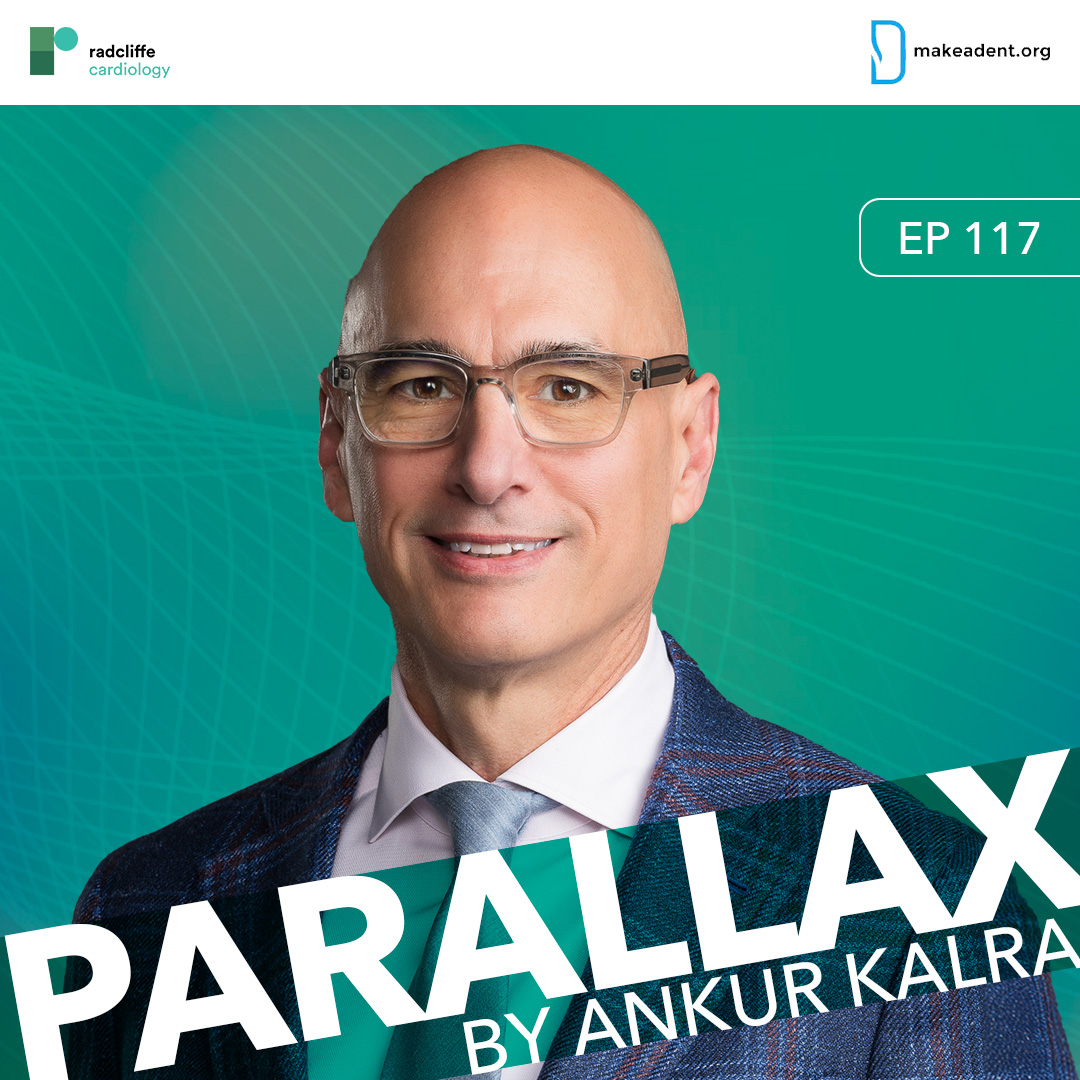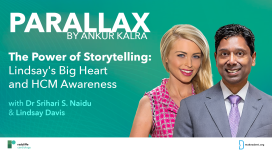
This week on Parallax, Dr Ankur Kalra welcomes Dr Marc Gerdisch to discuss a groundbreaking study on reducing opioid use after cardiac surgery.
Dr Marc Gerdisch is the Chief of Cardiovascular and Thoracic Surgery and Co-Director of the Heart Valve Center and Atrial Fibrillation Program at Franciscan St. Francis Health. He is a senior partner at Cardiac Surgery Associates and a Clinical Assistant Professor of Thoracic and Cardiovascular Surgery at Loyola University Medical Center in Chicago.
Dr Gerdisch shares insights into his research on rigid sternal fixation and enhanced recovery protocols, which have shown promising results in postoperative pain management and patient recovery.
In this episode, Dr Kalra and Dr Gerdisch discuss the specifics of the study, including the four-cohort design and the steps taken to expedite opioid-free recovery. Dr Gerdisch also shares valuable advice on overcoming physician inertia and building a strong case for implementing such a programme, including cost-benefit analysis considerations.
What motivated the study? How can a holistic approach to cardiac surgery recovery be implemented? What advice does Dr Gerdisch have for our listeners?
Sources:
Gerdisch MW, et al. Ann Thorax Surg 2024. Rigid Sternal Fixation and Enhanced Recovery for Opioid-Free Analgesia After Cardiac Surgery. DOI: 10.1016/j.athoracsur.2024.06.032
CE Cox. TCTMD 2024. Holistic Approach to Cardiac Surgery Can Sharply Cut Opioid Use. Available at: www.tctmd.com/news/holistic-appr…ply-cut-opioid-use. Accessed August 12, 2024.



US Cardiology Review journal, has recently seen a 7-fold increase in female editorial board members in response to journal-based strategic initiatives and the stellar work of USC editorial board leadership, Ankur Kalra (Editor in Chief) and Bill Gogas (Deputy Editor in Chief), who were keen to drive this change. With thanks to Dr Anastasia Mihailidou’s tenure as a new board member and her suggested nominees, ten new female board members have recently joined US Cardiology Review’s editorial board.

In this episode, Mike opens up about his childhood in Stilwell, Oklahoma. Ankur and Mike discuss how the inductive quality of art can complement the deductive principles of science. Mike recalls earlier stages of his career and warns about the blinding effect of the ego-driven, competitive culture of cardiology. Ankur asks Mike about fatherhood and about his role as an educator.
What does it mean to be fearless as a medical professional? How can you protect yourself from the emotional toll of the profession? What is Mike’s advice to early career cardiologists?
Sponsored by Edwards.

During her interventional cardiology fellowship, Dr Baron became fascinated by the implementation of novel technologies. She earned her degree in Clinical Epidemiology and spent a year working at the FDA’s Device Evaluation unit.
In 2019 Dr Baron presented the results of her late-breaking trial, COAPT. Ankur invites Suzanne to discuss the economic analysis of the study and to give a short introduction to cost-effectiveness analysis. Suzanne provides an overview of the trial and they talk about the importance of understanding the value and benefits of new devices from both the patient and the health-economic point of viewpoint.

How should you start building a research programme? What are Chuck Simonton’s thoughts on the relationship between doctors and the industry? What is Chuck’s message to young cardiologists?

After the #MedBikini campaign provoked by a misogynistic study that scrutinized female doctors’ social media posts, this episode is about creating a safer environment for female healthcare professionals.







